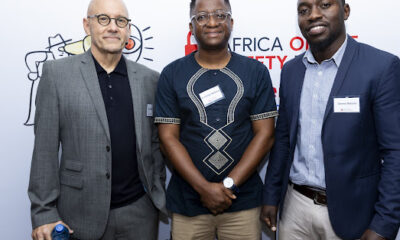Merger and Acquisition
Mandiant Acquisition: Google Finally Acquires Mandiant For $5.4 Billion
Google has completed the acquisition of Mandiant, a publicly-traded American cybersecurity firm, in a $5.4 billion deal.

Merger and Acquisition
Moody’s Acquires 100% Stake in GCR Ratings
Merger and Acquisition
Oando Secures 100% Stake in Nigerian Agip Oil Company, NUPRC Announces
Merger and Acquisition
Exxon Mobil’s Sale to Seplat Progresses After NNPC Drops Legal Challenge
-

 Billionaire Watch3 weeks ago
Billionaire Watch3 weeks agoWarren Buffett Donates $5.3 Billion in Berkshire Shares to Charities
-

 Startups4 weeks ago
Startups4 weeks agoFormer Konga CEO Nick Imudia Dies by Suicide in Lagos Home
-

 News4 weeks ago
News4 weeks agoJoke Silva Quashes Death Rumors, Confirms Olu Jacobs is Alive
-

 News4 weeks ago
News4 weeks agoNorth Israel Turns Into Ghost Towns Amid Hezbollah Missile Barrage
-

 Bitcoin4 weeks ago
Bitcoin4 weeks agoBitcoin Slumps 13% in Q2, Prompting Investor Concerns
-

 Naira4 weeks ago
Naira4 weeks agoNigeria’s Foreign-Exchange Woes Intensify with Prolonged Naira Decline
-

 Forex3 weeks ago
Forex3 weeks agoNigerian Banks Face Sanctions for Rejecting Small and Old US Dollar Notes
-

 Treasury Bills4 weeks ago
Treasury Bills4 weeks agoCBN Treasury Bills Auction Oversubscribed by 338%, Raises N284.26bn























